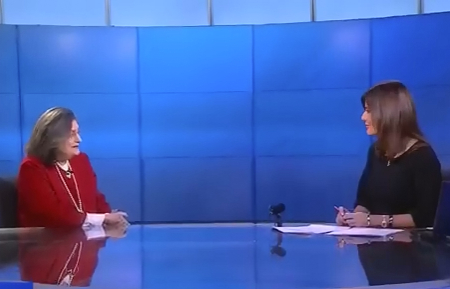
Professor Ala’i Discusses the Demise of the WTO Appellate Body and the Trade Wars
The WTO Appellate Body ceased functioning on December 11, 2019 when the term of two of the three remaining Appellate Body members expired. The WTO Appellate Body should have seven members with three sitting in each dispute. The demise of the Appellate Body was due to the U.S. decision to block appointments of new members to replace those whose terms expired. “This is unprecedented in the relatively short history of the WTO,” said Professor Padideh Ala’i in her interview with CGTN America. She noted that the U.S. supported the creation of a rule-based dispute settlement system during the Uruguay Round negotiations to replace the old consensus system of the GATT 1947 (the GATT). Under the rule based system, parties could not block either the formation of a panel or adoption of a report of the dispute settlement body. It was the Uruguay Round negotiations that created the standing Appellate Body that did not exist under the GATT. The rule based system was created so that parties could not block decisions against them, as had been the practice under the GATT. The U.S., however, has argued over time that the WTO Appellate Body has overreached its intended function, because it has engaged in judicial activism, acting like a world trade court when the members did not agree to create a court with judges. Professor Ala’i noted that this position predates the Trump administration and the blocking of appointments had started under the Obama Administration. The problem now is that the WTO dispute settlement rules provide the right of appeal to the Appellate Body from a WTO panel ruling, and given the current situation any party that does not agree with a ruling can appeal to a WTO body that does not function, thereby preventing a final ruling. In other words, although the right to appeal of WTO members remain intact, in practice they will not be able to exercise that right given that the appellate body is not functioning. Professor Ala’i mentioned three possibilities moving forward: (i) the EU’s proposal of a binding arbitration mechanism as an appellate mechanism; (ii) parties’ consent not to appeal when they bring a case before a WTO panel; or (iii) moving back in time to GATT’s days, where decisions would not be adopted until the losing party agreed to it. In other words, we are moving back to the consensus system of the GATT 1947.
In discussing the argument by the Trump Administration that the WTO has treated the U.S. unfairly, Professor Ala’i does not think that overall this is a valid charge. She observed that many other countries share many of the U.S.’s criticism of the Appellate Body, but they disagree with the U.S.’ approach in unilaterally blocking appointments without working towards a reform of the system. Professor Ala’i mentioned that it is true that there are a series of cases that the U.S. has lost involving trade remedies, but overall it has won more than lost. She noted that the Appellate Body has, at times, engaged in dicta and has used the public international law principles of treaty interpretation to interpret provisions of the WTO agreements in ways that parties disagree with. Specifically, Professor Ala’i noted that the U.S. is upset about the zeroing cases where the Appellate Body has found the practice of zeroing used by the U.S. to be inconsistent with its WTO obligations, repeatedly overturning WTO panel decisions that held the opposite. “There is this real feeling in Washington that when the anti-dumping code was negotiated that this was not the understanding and that zeroing was permissible under the code,” said Professor Ala’i.
Finally, Professor Ala’i discussed the current trade tension between the U.S. and China. In her view, the Trump Administration cannot resolve its problems with China through WTO dispute settlement. Professor Ala’i emphasized that the WTO dispute settlement mechanism is not intended to address structural problems. If the U.S. has issues with the way China structures its economy, it should not have expected the WTO dispute settlement to be able to address systemic issues. Addressing these problems by tariff measures is not the solution either. Professor Ala’i opined that in the world of global value change, tariffs just make commodities more expensive for consumers and perhaps more people in the U.S. She stated that if the U.S. hoped to control China’s influence, it should not have withdrawn from the TPP, because TPP was about containing China.